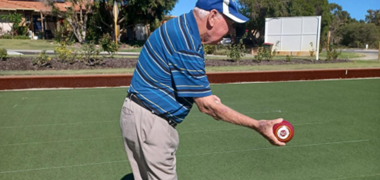My parent needs assistance but doesn’t want residential aged care

You know it’s time. Your parent might even know it’s time. But when an older person doesn’t want to enter residential aged care, you’re left in a quandary that may seem insurmountable. What do you do when your parent needs assistance but does not want to consider residential aged care?
Fortunately, older people living in Australia have good options for care that don’t include a residential aged care facility. In Western Australia, approximately one in eight people are aged 65 or over. This is projected to increase to one in five by 2050. As our population ages, more people need to be aware of how care works best for older people and their extended network of friends and family.
People of all ages assume being older and needing assistance means ending up in residential aged care. With the introduction of home care in 2013, this is no longer true. Older people can receive the support they need and stay in their own home, something often referred to as “ageing in place”. It allows people to live in their communities, with home care services that preserve independence, rather than enter residential aged care.
What is home care?
Home care is a variety of services to help a person safely age in place in their own home. Services fall into several different categories and are suitable for people with low care needs all the way up to complex, high care needs. Home modifications and aids to stay independent are also part of home care. Home care services are delivered by organisations across Australia who may provide one, many, or all types of services. Depending on their funding, people can choose to have one or many service providers to ensure they’re getting the best choice for every part of their care.
What services can people receive with home care?
Home care services fall into several categories to address the needs of each individual. They include:
- Personal services like help with dressing, bathing, hygiene and grooming
- Nursing services in the home to treat and monitor medical conditions
- Allied health services like podiatry and physiotherapy to help maintain movement and mobility
- Meals and food preparation like Meals on Wheels or help making simple meals in the home
- Impairment and continence services to address things like vision, hearing and incontinence
- Household services like cleaning, laundry, ironing and other chores
- Home and garden maintenance services to keep the home and surroundings in a safe condition
- Home improvements like grab rails, ramps, and motion sensors
- Aids to stay independent like walking aids and bedrails, to keep people safe in their home and when they leave the house
- Transport to ensure people can get to appointments, go shopping, and enjoy activities in their community
- Social support services to reduce isolation and loneliness and maintain connection to their community.
How can you access home care?
The first step to receiving home care is to apply for an ACAT assessment. Your parent can start the process online at My Aged Care or phone them on 1800 200 422. You can complete the application on behalf of a family member.
It’s best to apply for an assessment as soon as you think your parent would benefit from any sort of home care. Too often, people wait until there’s an emergency or an accident. In some cases, these situations could be avoided if they receive home care support.
What is the difference between the Commonwealth Home Support Program and Home Care Packages?
Commonwealth Home Support Programme
According to My Aged Care, the Commonwealth Home Support Programme (CHSP) is for older Australians who have low-level care needs. It’s designed to help maintain independence so people can continue to live safely in their own home.
The government subsidises organisations throughout Australia to deliver care and services at an affordable price. If they can afford to, people are expected to contribute to the cost of their care.
Home Care Package
A Home Care Package (HCP) is for people who need additional assistance or have complex care needs that can’t be met with the CHSP. These are generally ongoing services that benefit from a coordinated approach to care. It allows older Australians to have affordable care services to help them remain in their home. As a person requires more care to stay independent, the level of eligible services increases.
An HCP has a basic daily fee, an income-tested care fee, and an additional services fee. My Aged Care has a fee estimator to provide guidance on what it will cost to receive home care services. Contributions to these fees are dependent on a person’s financial situation and the provider who supplies services. Service providers like Brightwater are transparent about their fees.
Both CHSP and HCP services require an ACAT assessment to determine eligibility.
Find out how you can help your parents remain in their home
Residential aged care can seem like a scary step for many older people. The Australian government, in conjunction with myriad service providers, has developed home care assistance that enables older people to remain in their homes and stay connected with their communities. It’s an ideal option if you’re worried about how well your parent is able to look after themselves.
To enquire about Brightwater at Home’s services to keep your parent at home, ring 1300 223 968 or email [email protected].


